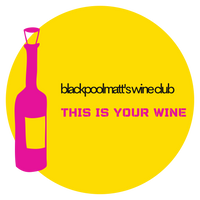south africa—from old to new
One of the many things I love about teaching WSET classes is the people I meet. A few years ago teaching WSET Diploma, one of my students was Peter Andrews. He's recently set up his own import business called Culture Wine Co., which is all South African wine. I was excited to taste some of the wines he's bringing into the US, and learn about the producers and their stories. South African wine is not always an easy sell in the States, so it's wonderful that the wines' reach is growing.
South Africa is a country constantly undergoing a huge amount of change. In wine, there is a long history, going back to the 1600s. Some of that history informs what's happening now: there is so much about South African wine that is exciting, vibrant, and unexpected, and well-worth exploring, often based on old vines.
Ironically, those old vines weren't initially planted for quality. Instead, the plantings were for brandy which was historically a big industry in South Africa. Grapes for brandy are high acid with neutral aromas, which is why Colombard was widely planted (it's also used in Cognac and Armagnac). Young-vine Colombard isn't very interesting, nor is it supposed to be. But old-vine Colombard has more depth and concentration. Processus, run by two women with backgrounds in art and music, make a "Colombar" (an old South African name for the variety and how it's actually pronounced in French) called [Not] From Here. It's quite different from any Colombard I've tasted: earthy, vegetal, almost like Sauvignon Blanc but not quite. It's a wine that confirms how inventive and imaginative South African winemakers are.

There are two other grape varieties (among many others) that must be mentioned. Pinotage has a bad reputation and is a complicated variety to work with. That reputation is becoming increasingly hard to justify, as there are many winemakers determined to make true expressions of the variety. One producer is Bernhard Bredell, whose winery is called Scions of Sinai. His Pinotage is part of a contemporary trend towards lighter-bodied wines that are gently fruity and herbal. Pinotage is a crossing of Pinot Noir and Cinsault, and this wine truly resembles those varieties in its lively red-fruit profile. I recently poured this in a WSET class, and one of the students said, "I have never tasted Pinotage like this."
Syrah/Shiraz is another variety that's becoming increasingly interesting in modern winemaking hands. South Africa's Mediterranean climate is ideal for the variety, and these wines will appeal to anyone who loves the Rhône. Brookdale's "Mason Road" is one of the most astonishingly affordable wines I've tried in a long time, with black fruit, licorice, black olive aromas, and lively acidity. It's made by a young Black winemaker, Kiara Scott Farmer, who is a rising star: it's welcome that the industry is gradually getting more diverse.
There's also great sparkling wine made in South Africa. It's labeled Méthode Cap Classique—South Africa is the only non-European country to have an official designation for its sparkling wines. The wines can be made from pretty much any grape variety, but must be made in the traditional method (like champagne) and aged for a minimum 15 months. Unfortunately, there isn't that much available in the States, so it's exciting to have the Blanc de Blancs by Genevieve into the club. It's 100% Chardonnay and is aged for four years on the lees, for a yeasty, toasty, dry style. It's a quality alternative to any sparkling wine you're used to drinking.
This is just a brief overview of what's happening in South Africa and I'm excited that, with the help of Peter, I can spread the love for what passionate winemakers are doing in such a beautiful and fascinating country.
*I just interviewed Peter for my podcast, take a listen!
